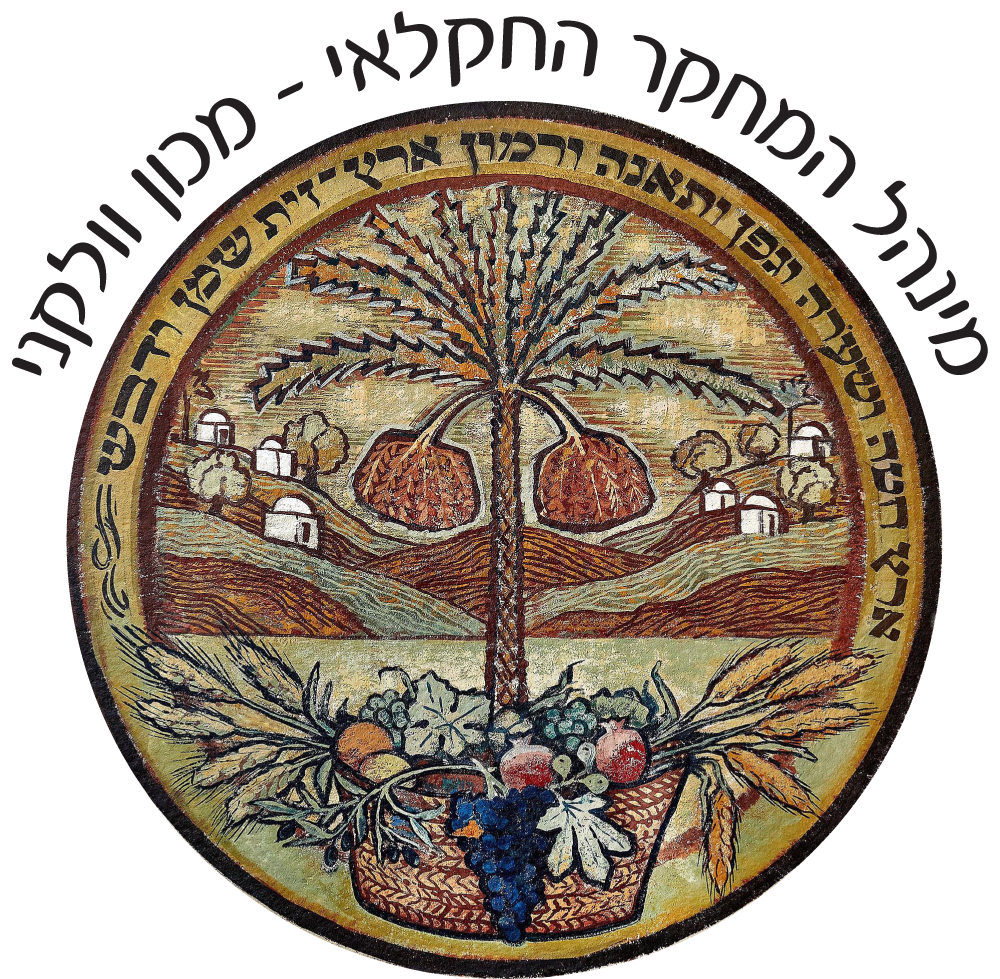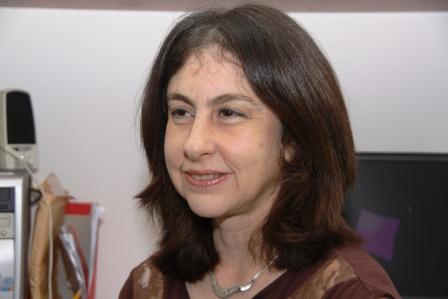Anat Elmann Ph.D.
Researcher
- Institute of Postharvest and Food Sciences, Institute of Postharvest and Food Sciences
- Food Sciences
- The building of Soil, Water and Environmental Sciences, Room 102
- +972-39683516
Biography
I am the head of the laboratory for Bioactive Phytochemicals at the Volcani Center.
I completed my PhD and postdoc training at the Weizmann Institute of Science and spent 4 years as a lab head at D-Pharm Biotech.
As a neurobiologist and immunologist, I have accumulated experience in investigating the therapeutic effects of plant extracts and purified phytochemicals in both animal models and cell-culture models.
The results of my research were published in international peer-reviewed journals and presented at international and national scientific meetings. I am also the named inventor of patent applications related to bioactive phytochemicals and plant extracts.
I have supervised graduate students and post-doctorate fellows and received competitive grants from organizations such as the ISF, BARD, Israel Ministry of Science, Israel Ministry of Agriculture, and Israel Ministry of Innovation.
I am also the President of The Israel Society for Oxygen and Free Radical Research (ISOFRR).
Education
-
1985 – 1988
B.Sc. in The Faculty of Life Sciences at Tel Aviv University, Israel
-
1988 – 1990
M.Sc. in The Department of Biochemistry, at The Faculty of Life Sciences, Tel Aviv University, Israel. With Distinction. Supervision by: Prof. Irit Aviram.
-
1991 – 1996
Ph.D. in The Department of Neurobiology, at The Weizmann Institute of Science. With Distinction. Supervision by: Prof. Michal Schwartz
-
1996 – 1999
Postdoctoral position at The Department of Chemical Immunology, The Weizmann Institute of Science, with Prof. Edna Mozes.
-
1997-2000, 2005
Staff scientist at The Department of Chemical Immunology, The Weizmann Institute of Science, with Prof. Edna Mozes.
-
2001-2004
Head of the enzymology laboratory, at “D-Pharm” biotechnology
Research Interests
Throughout most of human history, before the development of the conventional pharmaceutical industry, herbal extracts containing bioactive molecules were used to treat various diseases and symptoms. My research aims to study plants endemic to Israel, containing phytochemicals that can be developed into nutraceuticals, including drugs, botanical drugs, food supplements, and functional foods, to prevent/treat neurodegenerative and other chronic diseases.
The knowledge gained from my interdisciplinary research has implications for agriculture and health.
Research Areas
- Bioactivities and therapeutic potential of phytochemicals
- Bioactivities and therapeutic potential of plant extracts
- Phytochemicals as drugs for the treatment of neurodegenerative diseases.
- Plant extracts as food supplements and functional foods for the prevention of chronic diseases.
- Neuroprotective, anti-inflammatory, enzymatic and cellular effects
- Microglial cells, astrocytes, neuronal cells
Links
Publications/Articles
- Telerman, A., Ravid, U., Dudai, N., and Elmann, A.** (2023) Therapeutic effects of geranium oil in MPTP-induced Parkinsonian mouse model. Plant Foods for Human Nutrition
- Barak, T., Miller, O., Melamed, S., Tietel, Z., Harari, M., Belausov, E., and Elmann, A. ** (2023) Neuroprotective Effects of Pulicaria incisa Infusion on Human Neuroblastoma Cells and Hippocampal Neurons. Antioxidants 12: 32.
- Telerman, A., Ofir, R., Kashman, Y. and Elmann, A**. (2017) 3,5,4'-trihydroxy-6,7,3'-trimethoxyflavone protects against beta-amyloid-induced neurotoxicity through antioxidative activity and interference with cell signaling. BMC Complementary and Alternative Medicine 23;17(1):332. doi: 10.1186/s12906-017-1840-y.
- Elmann, A. **, Beit-Yannai, E., Telerman, A., Ofir, R., Mordechay, S., Erlank, H., and Borochov-Neori, H. (2016) Pulicaria incisa infusion attenuates inflammatory responses of brain microglial cells. Journal of Functional Foods 25: 110-122.
- Elmann, A.**, Telerman, A., Mordechay, S., Erlank, H., Rindner, M.T, Ofir, R. and Kashman, Y. (2014) 3,5,4‘-Trihydroxy-6,7,3‘-trimethoxyflavone protects astrocytes against oxidative stress via interference with cell signaling and by reducing the levels of intracellular reactive oxygen species. Neurochemistry International 78:67-75.
- Elmann, A., Telerman, A., Mordechay, S., Erlank, H., and Ofir, R. (2012) Antioxidant and astroprotective effects of a Pulicaria incisa infusion. Oxidative Medicine and Cellular Longevity Article ID 157598.

